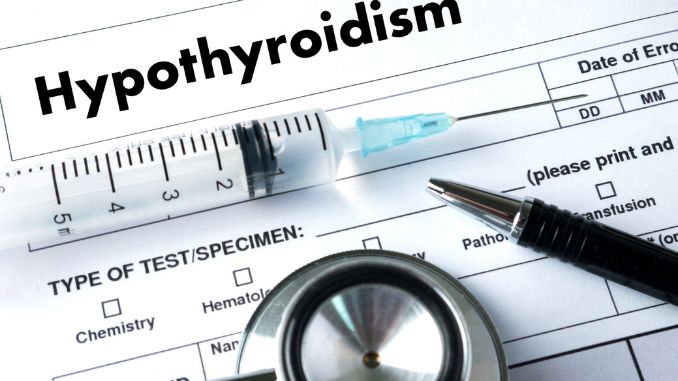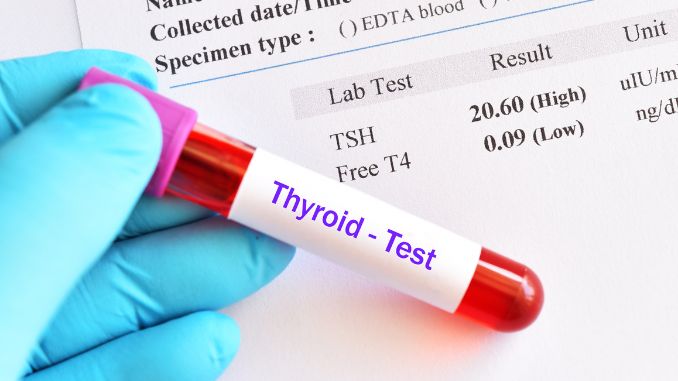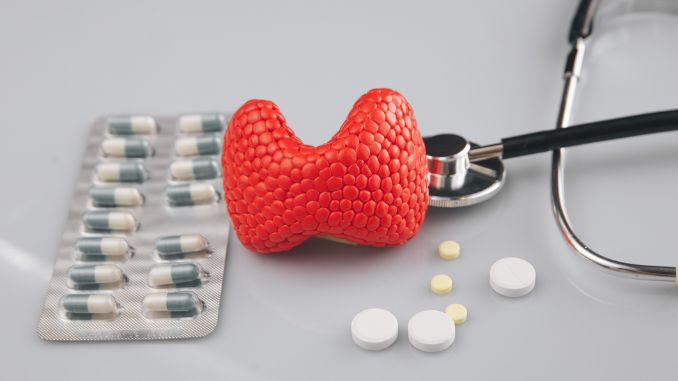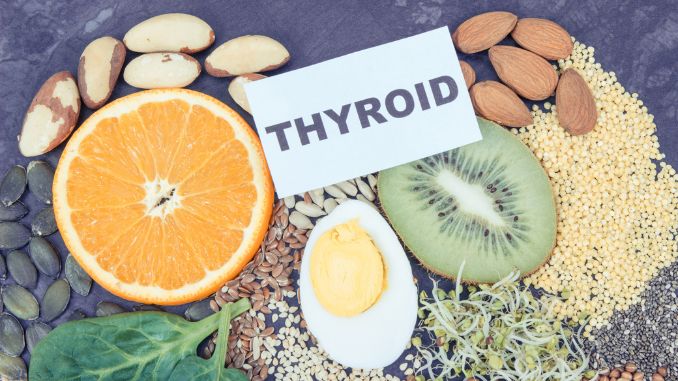Thyroid Function Diagnosis and Monitoring act as your body’s guiding compass. These critical tools allow doctors to ensure your thyroid operates optimally. Simple blood tests like TSH, Free T4, and Free T3 serve as your thyroid’s health report card, revealing whether it’s overactive or needs support.
Moreover, regular check-ups are vital to catch thyroid issues early. Balancing thyroid hormones is key, as imbalances affect energy, weight, and mood. Monitoring also enables prompt prescription adjustments, keeping your body in equilibrium. Maintaining Thyroid Function Diagnosis and Monitoring offers the best chance for a healthy, balanced, and also energized body.
What Is Hypothyroidism?
Hypothyroidism is a medical disorder in which the thyroid gland, a small butterfly-shaped structure in the neck, fails to generate adequate thyroid hormones. These hormones, namely thyroxine (T4) and triiodothyronine (T3) act as internal managers of the body, affecting how fast or slow it operates.
When you have hypothyroidism or subclinical thyroid dysfunction, your body’s engine runs on low power. This can also lead to many issues. You may feel fatigued all the time, gain weight for no apparent reason, and develop a sensitivity to cold. Your skin may also be dry, and your hair may fall out more frequently than usual.
Furthermore, one major cause of hypothyroidism is an immune system malfunction known as Hashimoto’s thyroiditis. Instead of protecting your thyroid, your immune system attacks it by mistake. This also can interfere with the thyroid’s capacity to produce enough hormones.
Doctors use blood tests to determine whether you have hypothyroidism. These tests examine thyroid hormone levels as well as antibodies that signal an immune system attack. The good news is that hypothyroidism is treatable. Doctors frequently prescribe levothyroxine, a drug that provides your body with the thyroid hormones it requires. It’s also similar to boosting your engine to make it run more smoothly. People with hypothyroidism can live healthy, normal lives with the correct medicine and also some lifestyle changes.
The Early Signs Of Hypothyroidism
Hypothyroidism, or underactive thyroid, manifests through a range of signs and symptoms. These can also differ in severity, and not everyone with hypothyroidism experiences all of them.
Common signs include:
1. Fatigue: Persistent exhaustion and lack of energy, even with adequate rest.
2. Weight Gain: Difficulty in losing weight or unexplained weight gain.
4. Sensitivity To Cold: Feeling excessively cold, even in normal temperatures.
5. Dry Skin And Hair: Dryness and brittleness of the skin and hair, accompanied by hair loss.
6. Constipation: Sluggish bowel movements and difficulty with regular elimination.
7. Muscle Aches And Stiffness: Generalized body pain, muscle cramps, and stiffness.
8. Joint Pain: Aching or discomfort in the joints.
9. Depression Or Mood Swings: Persistent feelings of sadness, low mood, or mood swings.
10. Slow Heart Rate: Bradycardia, or a slower-than-normal heart rate.
11. Menstrual Irregularities: Changes in the menstrual cycle, including heavier or irregular periods.
12. Swelling: Fluid retention leads to puffiness, especially in the face.
13. Hoarseness: Changes in the voice and persistent hoarseness.
Potential Causes Of Hypothyroidism
Hypothyroidism occurs due to insufficient production of thyroid hormones by the thyroid gland, affecting the body’s metabolism.
-
Autoimmune Thyroiditis (Hashimoto’s Disease)
At times, the immune system can become disoriented and initiate an attack on the thyroid. This can also lead to inflammation and damage, making it hard for the thyroid to do its job. The primary reason behind hypothyroidism often stems from Hashimoto’s disease.
-
Iodine Deficiency
The thyroid needs iodine to make hormones. If there’s not enough iodine in the thyroiditis diet, the thyroid can’t function properly. However, iodine deficiency is rare in places where salt is iodized.
-
Medications
Certain medicines, like lithium or amiodarone, can mess with Thyroid Function Diagnosis and Monitoring. If you’re on these meds, your doctor will keep an eye on your thyroid levels.
-
Thyroid Surgery Or Radioactive Iodine Treatment
Sometimes, people need surgery or radiation for thyroid issues. But, these treatments can lead to lower hormone production, causing hypothyroidism. In such cases, doctors often prescribe thyroid hormone replacement.
-
Pituitary Gland Issues
The pituitary gland communicates with the thyroid to produce hormones through TSH. If the pituitary isn’t working right, it might not signal the thyroid correctly, also leading to low hormone production.
-
Genetic Factors
In other cases, Hypothyroidism runs in families. If close family members have thyroid issues, it might also increase the risk of others.
Understanding the cause is crucial for the right treatment. Doctors often also use blood tests to figure out what’s going on and tailor treatment based on the underlying cause. Remember, if you suspect hypothyroidism, consulting with a healthcare professional is the first step to feeling better.
3 Lab Tests Essential For Hypothyroidism
1. Reverse T3 Test
This test checks a hormone called reverse T3. If this hormone is too high, it might be harder for the thyroid to do its job. This could cause problems like feeling tired of gaining weight. Checking reverse T3 helps understand how well the body is using thyroid hormones.
2. Anti-TPO Test
The Anti-Thyroid Peroxidase test is important for finding out if the immune system is attacking the thyroid. If the levels of Anti-TPO antibodies are high, it suggests the immune system is causing inflammation and may possibly be harming the thyroid. This test helps figure out if an autoimmune issue is causing hypothyroidism.
3. Adrenal Count Tests
This is an indirect test for the thyroid, but it looks at how well the adrenal glands are working. The thyroid and adrenals are linked, and if the adrenals are not balanced, it can affect the thyroid. Tests that check cortisol levels, like the cortisol saliva test, help understand how stress might impact the thyroid. In today’s busy life, stress can make thyroid problems worse.
Additional Lab Tests For A Comprehensive Assessment Of Hypothyroidism
Thyroid Function Diagnosis and Monitoring tests are crucial in evaluating the health of the thyroid gland and diagnosing thyroid diseases. These tests indeed provide valuable insights into the thyroid’s performance and play a crucial role in identifying potential issues.
-
Thyroid Stimulating Hormone (TSH)
One key Thyroid Function Diagnosis and Monitoring test is Thyroid Stimulating Hormone (TSH), which also indicates whether the thyroid receives the appropriate signals to produce hormones. Elevated TSH levels often suggest the need for thyroid stimulation.
-
Measuring Free T4 And Free T3 Levels
Another vital aspect of thyroid function testing. These tests also directly assess the levels of active thyroid gland hormones. Low levels may be associated with symptoms such as fatigue or weight gain. Thyroid Function Diagnosis and Monitoring is typically done through regular blood tests that assess key thyroid hormones and markers.
Moreover, commonly measured parameters include thyroid stimulating hormone (TSH), free thyroxine (Free T4), and free triiodothyronine (Free T3). These tests offer a comprehensive view of the thyroid’s activity and also help determine if hormone levels are within the normal range.
-
Thyroid Antibody Tests
Including anti-TPO (Thyroid peroxidase antibodies) and anti-Tg, which examine potential autoimmune attacks on the thyroid. Elevated antibody levels can also signal autoimmune issues affecting the thyroid.
-
Cholesterol Levels
Checking cholesterol levels is also considered, as hypothyroidism can impact cholesterol levels. Monitoring cholesterol provides insights into whether the thyroid plays a role in any associated troubles.
-
Complete Blood Count (CBC)
This offers a comprehensive overview of overall health. Importantly, thyroid-related issues may manifest in the CBC, making it a valuable component of thyroid function testing.
Lab Tests Unveiling The Secrets Of Hypothyroidism Management
Thyroid function testing plays a role in diagnosing thyroid disease, thyroid cancer, or if you have an overactive thyroid. Key laboratory assessments include Thyroid Stimulating Hormone (TSH), Free T4, and occasionally Free T3. TSH acts as a messenger, prompting the thyroid to produce hormones. Elevated TSH levels, seen in hypothyroidism, reflect the body’s attempt to stimulate thyroid hormone production.
Free T4 serves as the raw material, while Free T3 acts as the potent force driving thyroid function. Additionally, these metrics measure the actual thyroid hormones present in the bloodstream. Lowered levels of Free T4 and Free T3 indicate an underactive thyroid. Regular monitoring through these thyroid blood tests indeed allows physicians to fine-tune medication doses, ensuring hormone levels remain within optimal range.
In cases where TSH is excessively high, it signals the necessity for increased thyroid gland hormones. Conversely, a low TSH level may indicate the need for a reduction in medication dosage. This systematic approach to thyroid function testing aids in maintaining a delicate balance of hormones for overall health.
Treatment Options For Hypothyroidism
1. Thyroid Hormone Replacement Therapy
Commonly Prescribed medications such as levothyroxine or synthroid are utilized to address thyroid dysfunction. These drugs supply the necessary hormones to the body.
2. Monitoring Medication Effectiveness
Regular medication monitoring through thyroid function tests, including thyroid peroxidase antibodies, helps fine-tune dosage levels. This guarantees that thyroid hormone levels remain within the optimal range.
3. Implementing Lifestyle Adjustments
Incorporating a diet rich in iodine and selenium supports a healthy thyroid gland. Regular exercise is also beneficial for metabolism and energy levels.
4. Maintaining Consistent Medication Timing
Taking thyroid medication at the same time daily promotes a steady hormone level, contributing to treatment efficacy.
5. Preventing Medication Interference
It is advisable to take thyroid drugs separately from substances like calcium supplements and also certain drugs that may impact absorption.
6. Patient Education
Educating patients on the significance of adhering to a consistent medication schedule is crucial. Also, recognizing symptoms of over or under-medication and promptly reporting them to healthcare providers enhances treatment management.
7. Regular Follow-Up With Healthcare Provider
Periodic check-ins with healthcare providers involve monitoring hypothyroidism symptoms and adjusting treatment plans as needed for optimal effectiveness.
8. Thyroid Surgery (In Certain Cases)
Individuals with large goiters or specific thyroid nodules may indeed undergo thyroid surgery, which removes part or all of the thyroid gland.
9. Management Of Underlying Causes
Addressing any contributing factors to hypothyroidism requires a collaborative approach with healthcare providers for comprehensive care.
Eat Smart: What To Avoid When You Have Thyroid Problems?
- Soy Products: Soy contains compounds called goitrogens that may interfere with thyroid function. Cooking can help reduce their impact, but consuming soy in moderation is advisable.
- Cruciferous Vegetables: Vegetables like broccoli, cauliflower, cabbage, and Brussels sprouts also contain goitrogens. Cooking these vegetables or consuming them in moderate amounts is generally recommended.
- Raw Cruciferous Vegetables: Eating large amounts of raw cruciferous vegetables may have a more pronounced impact on thyroid function. Cooking or steaming can also help mitigate the goitrogenic effects.
- Gluten: Some people experiencing autoimmune thyroid disorders, like Hashimoto’s thyroiditis, may benefit from reducing gluten intake, as gluten sensitivity may also exacerbate autoimmune responses.
- Processed Foods: Highly processed foods, especially those with unhealthy fats and excessive sugar, may contribute to inflammation and may not support overall thyroid health.
- Excessive Iodine: While iodine is critical for thyroid function, excessive intake can be detrimental. Avoiding high-dose iodine supplements and consuming iodized salt in moderation is advisable.
- Caffeine: Excessive caffeine intake may certainly interfere with thyroid hormone absorption. Limiting caffeine consumption, especially from sources like coffee, may benefit some individuals.
- Alcohol: Excessive alcohol consumption can disrupt thyroid function and interfere with medication absorption. Moderation is indeed the key for those with thyroid issues.
How To Support Thyroid Health Through Your Diet
1. Iodine-Rich Foods: Iodine is essential for thyroid hormone production. Good sources include seaweed, fish (especially cod and tuna), dairy products, and iodized salt.
2. Selenium-Rich Foods: Selenium is another mineral important for thyroid health. You can find it in sunflower seeds, Brazil nuts, fish, turkey, and beef.
3. Omega-3 Fatty Acids: Found in fatty fish like chia seeds, salmon, flaxseeds, and walnuts, these can indeed help reduce inflammation and support thyroid function.
4. Vitamin D: Foods like fatty fish, egg yolks, and fortified dairy can certainly contribute to your vitamin D intake, which is linked to your thyroid health.
5. Zinc: Foods high in zinc, such as chicken, beef, pumpkin seeds, and lentils, support thyroid function.
6. Tyrosine-Rich Foods: Tyrosine is an amino acid crucial for thyroid hormone production. Also, good sources include lean meats, dairy products, and nuts.
7. Fruits And Vegetables: These are indeed high in antioxidants, which help combat inflammation. Moreover, berries, tomatoes, and bell peppers are good choices.
8. Beans And Legumes: Rich in fiber, beans, and legumes help stabilize blood sugar levels, supporting overall metabolic function.
9. Seeds (Like Pumpkin And Sunflower): Packed with zinc and selenium. These seeds certainly contribute to a healthy thyroid and immune system.
10. Low-Fat Dairy: Dairy products are also a good source of iodine and tyrosine, essential for thyroid hormone production. Opt for low-fat options for a thyroid-friendly choice.
Conclusion
The Significance Of Thyroid Function Tests In Hypothyroidism Diagnosis And Management
Lab exams offer tangible proof of thyroid function. Tests like Free T4, TSH, and Free T3 pinpoint hypothyroidism, revealing if the thyroid needs support. These tests indeed scrutinize blood to check hormone levels.
They’re crucial not just for diagnosis but for managing hypothyroidism. Moreover, assessments for thyroid antibodies refine treatment, ensuring the right medication and supplements.
This precision matters greatly for wellness. Beyond numbers, these tests guide doctors in preserving overall health. Additionally, regular check-ups and these tests are essential for a well-functioning thyroid and overall well-being.
Are Raging Hormones Making You Feel Crazy, Moody or Like Hiding Under the Bed? If you’re a woman, you know that hormones can make you feel like you’re on an emotional roller coaster. Discover How to Balance Your Hormones Naturally and Quickly through our “14-Day Hormone Balancing Quick Start Program”

Rick Kaselj MS, is a leading kinesiologist and injury specialist as well as co-creator of the best-selling Unlock Your Hip Flexors program. Rick creates exercise programs that help people heal injuries and eliminate pain, so they can go back to living a full, active, healthy life.











